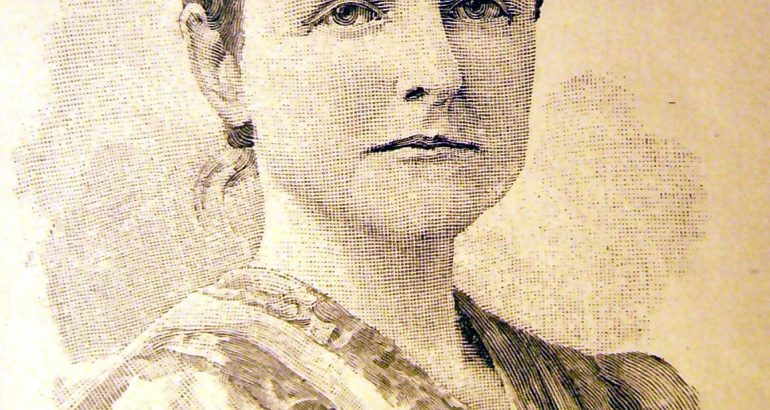
- Posted: 12 enero, 2016
- By: Instituto Internacional
- Comments: No Comments
ENGLISH READING CIRCLE – SHORT STORY OF THE MONTH ANALYSIS: “A NEW ENGLAND NUN” BY MARY E. WILKINS FREEMAN
This month’s story is Mary E. Wilkins Freeman’s “A New England Nun,” first published in 1891. The story is heavily realistic, and infused with a high degree of local color and detail meant to fully capture the bucolic pace and feel of village life in late 19th century New England. This languid tranquillity is the defining feature of the life of Louisa Ellis, the story’s main character, and its preservation is, to some extent, what ultimately drives Louisa to break off her engagement with Joe Dagget. Louisa leads and has led during the fourteen years of her engagement a very harmonious, self-contained life, secluded in her house, with only her dog Caesar, who is permanently chained in the backyard, as a companion. As Wilkins Freeman makes clear, Louisa draws a great deal of satisfaction from maintaining her possessions and her customs in a perpetually pristine and unaltered state. The reality of her looming marriage disconcerts her, in large part because it signals an interruption of her tranquillity, and the imposition of a “coarse masculine presence” within her perfectly curated domestic sphere.
Louisa’s reluctance to confront change is not the sole reason for her to end her engagement, of course. The primary motivation comes from a conversation she overhears between Joe Dagget and Lily Dyer, a girl from the village who, Louisa learns, is the new object of Joe’s affection. It seems as if all the makings for a tragic love-story are in place, yet rather than set the love triangle off towards pain and suffering, the story takes a rather unusual turn. Instead of feeling slighted, Louisa feels relieved, and wastes no time in expressing to Joe her desire to end their arrangement. Joe agrees, and they part amicably, as tender friends. Louisa is left with her placid life and precious property, and is immeasurably pleased to return to both. She has avoided a loveless marriage, and, what is perhaps just, or more, important: she has avoided losing control of her surroundings and her routine. The story ends with her embracing her secluded, quiet life, like an “uncloistered nun.”
It seems that we should celebrate Louisa’s decision to halt her upcoming nuptials, which have guided and shaped her life for fourteen years. Her resolve to call the wedding off certainly does deserve praise, since it goes against the inertia that has defined her character, and the character of 19th century village life in New England in general. Simply by changing course Louisa has distinguished herself. And since all the characters involved acted with honor, the resolution is all the more satisfying. Such a commitment to virtue on everyone’s part is what allows Louisa to act with decisiveness, and embrace her life to come with no regret.
Because this story is such a strong example of realism, it is easy to feel disoriented by the sharp contrasts it confronts us with, in particular with regard to social customs and gender roles. The eagerness with which Louisa accepts her fate is, perhaps, somewhat jarring for a contemporary reader. However, it is important to temper our judgement here, and focus on those aspects of the text that suggest a possible submerged critique of Louisa’s choices and lifestyle. One possible avenue for such an interpretation, limited though it might be, is to consider more carefully the anecdote of Louisa’s dog Caesar’s infamy, his confinement and inhibited nature, and Joe Dagget’s soft rebuke of Louisa for her treatment of him. Is Wilkins Freeman opening the door for us to challenge Louisa’s perfectly ordered existence? Or do you think she endorses the lifestyle and worldview of this New England nun?
I look forward to hearing your thoughts on these and other points next week, until then, happy reading.
Andrew Bennett.
More details about the English Reading Circle at the library website inside the “Actividades” tab (https://www.iie.es/biblioteca-del-instituto/).



